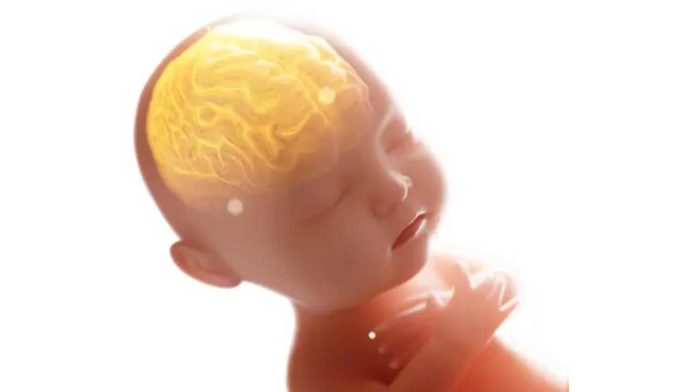Working in a mouse model, scientists from the University of Iowa and University Hospitals Cleveland Medical Center demonstrates that offspring can be protected from the effects of prenatal stress. Scientists find a new strategy that includes administering a neuroprotective compound during pregnancy.
Various studies have already suggested the long-lasting impact of stress during pregnancy, leading to neuropsychiatric impairment in offspring during early life and adulthood. In this study, scientists focused on discovering neuroprotective treatments, exemplified by the pharmacologic agent used here, known as P7C3-A20, which has previously been shown to protect the adult brain from injury.
Rachel Schroeder, a student in the UI Interdisciplinary Graduate Program in Neuroscience, said, “Prenatal stress increases the risk for offspring to have neurodevelopmental problems. We wanted to know whether the P7C3-A20 compound protected the embryonic brain from damage. Our results show that offspring are protected from the negative effects of stress when the mothers are treated with P7C3-A20 during the same time.”
In a past study, scientists discovered that P7C3-A20 enables nerve cells to maintain normal levels of an energy molecule known as nicotinamide adenine dinucleotide (NAD+) under toxic or injury conditions that are otherwise overwhelming and energy-depleting for the cell.
In this study, scientists showed that chronic prenatal stress in mice disrupted the embryonic brain’s NAD+-synthesis machinery, which led to degeneration of nerve cell axons, learning deficits, and depression-like behavior when the offspring reached adulthood. Schroeder demonstrated that when prenatally-stressed pregnant mice were simultaneously treated with P7C3-A20, their offspring were protected from these negative effects.
Schroeder said, “By stabilizing critical NAD+-producing mechanisms, we enabled the developing embryonic brain to continue developing normally despite the stress.”
Andrew A. Pieper, MD, Ph.D., a former UI faculty member, said, “Though there are many challenges associated with administering medicines during pregnancy, Rachel Schroeder’s discovery represents an exciting move forward in understanding how prenatal stress harms the brain and strategies for protecting the developing embryo.”
Hanna Stevens, MD, Ph.D., UI associate professor of psychiatry, said, “This study represents an important proof of concept for a new approach to early prevention of neuropsychiatric problems. Neuropsychiatric problems are the most common chronic illnesses of young people, which means we need many more ways to protect the brain as it develops. Our lab is focused on mechanisms of brain development prenatally, a critical time when we could make a difference.”
Journal Reference:
- Rachel Schroeder et al. Maternal P7C3-A20 treatment protects offspring from neuropsychiatric sequelae of prenatal stress. DOI: 10.1089/ars.2020.8227
